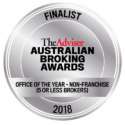What is commercial property finance?
Commercial property finance is the term used for loans on property with land zoned as either commercial, industrial, or mixed use.
Commercial finance is used for a range of properties which generally fall under the broad categories of office, retail, industrial, and hospitality.
Commercial properties include service stations, hotels, pubs and clubs, car washes, industrial warehouses, manufacturing plants, storage facilities, cafes, offices, retail stores, shopping centres, car parks, mixed use sites, and special purpose sites.
Finance for commercial property is via special commercial loan products such as term loans, small business loans, business lines of credit, bridging loans, SMSF loans, low doc loans, lease doc loans, and bank bill swap bid rate (BBSY) commercial loans. These loans are offered by a range of lenders, including the major banks, tier 2 lenders, specialist commercial lenders, and capital funds.
Loan terms are usually shorter than residential mortgages, ranging from 3 to 25 years, carry higher fees and interest rates, and often come with conditions known as covenants that the borrower must meet to satisfy the terms of their loan.
There is greater flexibility around the structuring of commercial loan facilities, which can be tailored depending on the transaction and the borrower.
Due to commercial properties having use restrictions and limitations as well as lower demand versus residential property, lenders have limits in place for commercial loans around maximum loan amounts, loan to value ratios, and other restrictions depending on the type and location of the property.
Ways to own a commercial property
There are several ways to own a commercial property, and it is important to seek and receive advice which is specific to your circumstances before deciding on the way which is best for you.
- Within a company structure. This may be your existing business, or a company set up specifically for the purpose of holding the commercial property.
- Within a trust structure. Again, this could be an existing trust, or a trust set up for the specific purpose of holding the commercial property.
- In an individual name/s.
- Most lenders can accommodate financing a commercial property regardless of the ownership structure.
How to finance a commercial property
There is a wide range of commercial property lenders in Australia, including banks, non-banks, and independent lenders, offering a variety of products for financing commercial property.
Bank loans
The appetite for different property types varies between banks and can also vary with an individual bank over time based on the current weighting of their loan portfolio and changes in risk assessment.
Transactions are assessed on an individual basis, so there can be a lot of variation when it comes to terms on a commercial property loan.
Banks will generally offer lower interest rates due to more stringent credit risk assessment processes and criteria. Most major bank commercial property loan terms range from 3 to 15 years, with some now offering terms up to 25 years.
The major banks will often look to align the term of the loan facility with the remaining term of the lease currently in place on the property.
Ongoing requirements can vary, with most banks requiring annual (and at times, more frequent) supply of financial documentation and information to help them detect and manage any potential risks associated with the commercial loan facility.
The banks offer the most flexibility when it comes to property location and property type.
The loan-to-value ratio (LVR) is determined by several factors. This includes the location, type, and use of the property, as well as the strength of the borrower. Banks are generally more conservative, with maximum LVRs of 50-65%. In some cases, and for specific property types, they may lend up to as high as 80% of the value of the property.
If additional security is offered a bank may consider lending up to 100% of the value of a commercial property where the applicant is strong.
Banks have more stringent application processes and credit risk assessments, take more covenants (ongoing requirements to supply information and documentation to the lender), and shorter loan terms. In return, they generally offer more competitive interest rates.
Non-bank and independent lenders
These types of lenders offer a more set-and-forget type of loan, without the requirement for regular ongoing reviews of the facility.
Loan terms up to 30 years are generally available, and LVRs as high as 75-80% are available.
Non-bank and independent lenders do not accept as broad a range of commercial property types or locations as the banks, preferring office, industrial, and retail properties located in Capital cities or major regional centres only.
The interest rates offered by these lenders are usually higher, and increase in line with the required LVR.
Set up costs range from comparable to the major banks through to much higher, however this is usually balanced by lower ongoing fees and charges such as line fees or account fees.
It is important to evaluate your options before deciding on which lender and product best meets your requirements.
Low doc and Lease Doc loans
There are both low doc and lease doc commercial property loans available.
Low doc loans have lower documentation requirements than traditional loans. Instead of providing financials and tax returns, the lender may instead rely on Business Activity Statements, bank statements, or an accountant’s letter.
Lease doc loans require only the current lease agreement as evidence of income; however, an application will only qualify for a lease doc product when the LVR and loan size are lower.
Both low doc loans and lease doc loans have lower maximum LVRs and higher interest rates compared with full doc loans.
Private loans
Private lending is available for commercial property; however, this type of loan is not usually a viable option for periods longer than 12 – 24 months.
Establishment fees on private loans are usually 1-2% of the loan amount, and interest rates range from high to very high (as high as 2 – 3% per month).
Private loans can often include capitalisation of the interest expense, meaning you are not required to pay the interest until the loan is repaid.
The advantage of these type of loan is they can be approved and funded as quickly as 2-5 days, and the approval process is focused more on exist strategy rather than the ability to service the debt.
Situations where a private loan might be suitable include:
- Short term bridging finance, such as where proceeds of a property sale will be used to pay out the private loan, or a purchase needs to be completed but bank finance is not yet ready.
- Construction loans, where a site will be developed and then sold, with sale proceeds being used to repay the loan.
- Land banking, where the borrower intends to lodge a Development Application (DA) for approval and then sell the property with the approved DA.
- Where the borrower will be receiving funds in the future but requires access to those funds now.
Other methods
All commercial property is purchased via a mix of either equity, debt, or both.
There are a range of complex solutions available to acquire a commercial property where you do not have the ability or the intention to complete the transaction on your own.
Solutions include:
Mezzanine finance – involve a blend of debt finance (loans) and equity investment, where the equity investors have the option to switch their equity to debt. This ranks them ahead of other owners for the return of their capital.
Joint ventures – this involves partnering with another party who adds strength to the transaction. This could be by way of additional cash towards the purchase, improving the ability to borrow funds, or offering experience/expertise.
Private equity – this is where private investors, or private investment funds, hold equity in the property or the entity which owns it.
Real Estate Investment Trusts (REITs) allow you to invest in real estate assets via a trust which owns the assets and entitles you to share in the income those assets generate. There are many REITs listed on the ASX, and they allow access to a range of property assets without needing to have a large amount of money to invest or the need to personally take on debt.
Bell Partners Finance do not offer services or advice on the above, however we can point you in the direction of our Financial Planning and Wealth Creation business who can offer their advice and services.
Managing Risk
As with any investment, there are a range of risks involved with commercial property. You should seek out professional advice in relation to preparing a plan to manage these risks.
Risks can include:
Interest rate risk: This is the risk that interests rates will change unfavourably.
Credit risk: Is the risk of loss if contractual obligations and covenants are not met or repayments are not made.
Market risk: This could include the value of commercial property owned falling in value or a falling rental market.
Liquidity risk: Relates to the ability to convert the property to cash via a sale or to access the required funds to meet ongoing obligations such as loan repayments and other outgoings.
How Bell Partners Finance can navigate the complexities of commercial property for you
We have decades of experience in a broad range of commercial property transactions and access to a comprehensive panel of lenders including major banks, tier 2 banks, non-banks, independent lenders, specialist lenders, and private funds.
We can assist with:
- Determining your needs, requirements, and priorities
- Answering questions and providing information
- Researching lenders, analysing options, presenting product comparisons, and providing our recommendation based on property type, location, and use
- Negotiating terms with lenders on your behalf, including fees, charges, interest rates, and covenants
- Advice on debt structuring for commercial property finance
- Preparation of credit papers and application forms
- Ordering and managing commercial property valuations
- Guidance and assistance with meeting conditions precedent
- Assisting with annual loan reviews and satisfying covenant requirements
- Assistance with renegotiating and resetting existing facilities
- Connecting you to our range of inhouse experts in accounting, financial advice, general insurance, and commercial property law to assist with all aspects of your commercial property transaction





